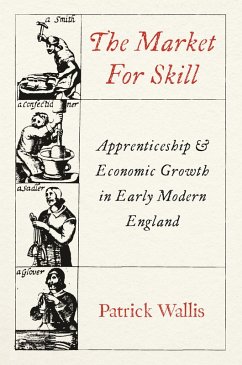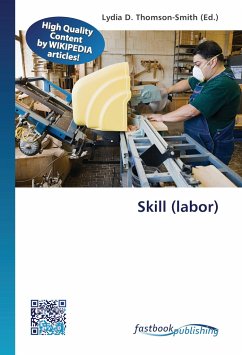How apprenticeship shaped the English economy Apprenticeship dominated training and skill formation in early modern Europe. Years spent learning from a skilled master were a nearly universal experience for young workers in crafts and trade. In England, when apprenticeship reached its peak, as many as a third of all teenage males would serve and learn as apprentices. In The Market for Skill, Patrick Wallis shows how apprenticeship helped reshape the English economy. Some historians see apprenticeship as a key ingredient in the industrial revolution; others agree with Adam Smith in seeing it as wasteful and conservative. Wallis shows that neither of these perspectives is entirely accurate. He offers a new account of apprenticeship and the market for skill in England, analyzing the records of hundreds of thousands of individual apprentices to tell the story of how apprenticeship worked and how it contributed to the transformation of England. Wallis details the activities of apprentices and masters, the strategies of ambitious parents, the interventions of guilds and the decisions of town officials. He shows how the system of early modern apprenticeship contributed to the growth of cities, the movement of workers from farms to manufacturing and the spread of new technologies and productive knowledge. In this groundbreaking study, Wallis argues that apprenticeship succeeded precisely because it was a flexible institution which allowed apprentices to change their minds and exit contracts early. Apprenticeship provided a vital channel for training that families could trust and that was accessible to most young people, whatever their background.
Hinweis: Dieser Artikel kann nur an eine deutsche Lieferadresse ausgeliefert werden.
Hinweis: Dieser Artikel kann nur an eine deutsche Lieferadresse ausgeliefert werden.








